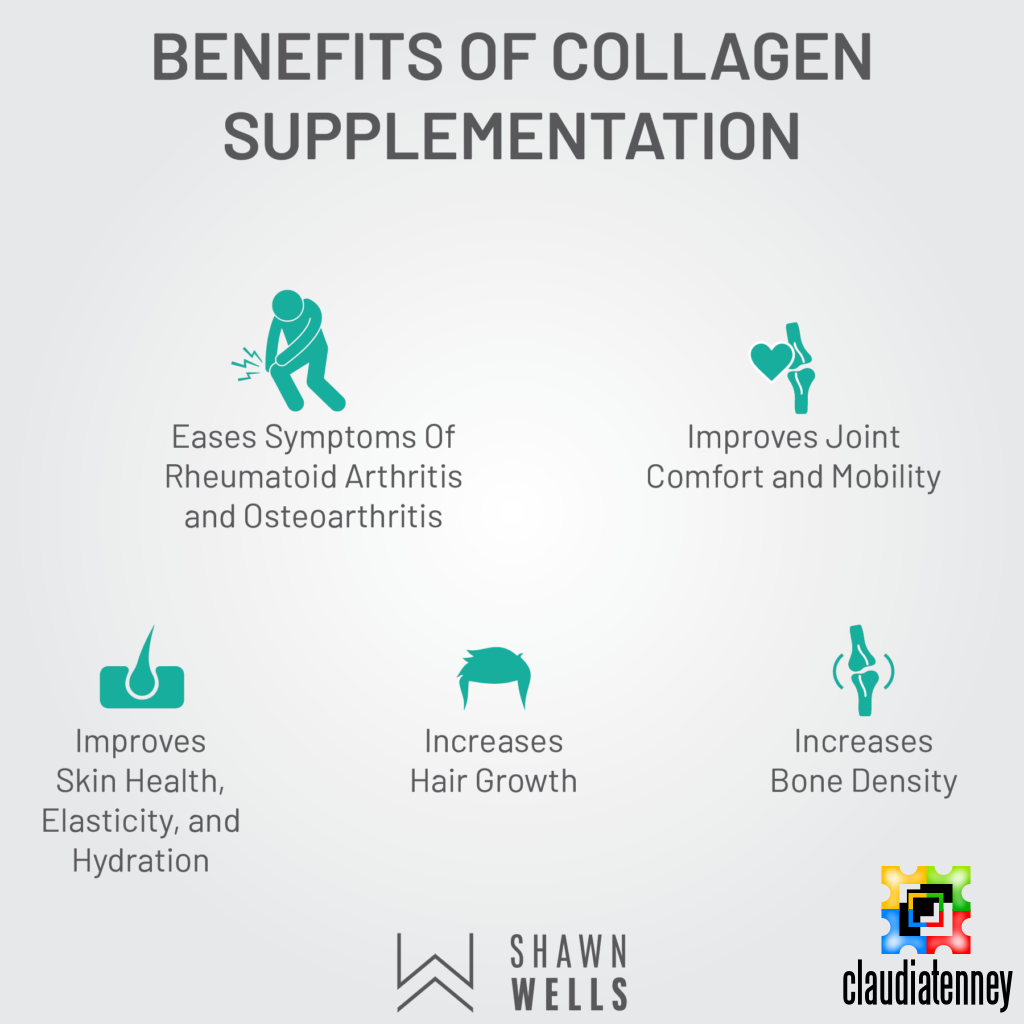Among the numerous benefits that men can enjoy by using collagen supplements is the ability to reduce the risk of many serious diseases, including heart diseases and degenerative joint disorders. It also helps to rejuvenate your skin, and helps to lose weight.
Weight loss
Adding collagen to your diet could be a good way to improve your health and boost your energy. It can also help repair muscles and joints. It is also known to improve your skin, hair and nails
Collagen is a protein which is broken down into smaller peptides which are absorbed by your gastrointestinal tract. Although this may sound confusing, these smaller peptides actually perform some of the same functions as protein powders.
Collagen is also thought to reduce swelling and local inflammation. This can help reduce pain and improve joint flexibility.

Collagen also helps promote weight loss. Research shows that people who supplement with collagen are able to burn more calories during their workouts and at rest. It is also known to promote satiety. This can reduce your overall food intake.
Skin rejuvenation
Besides the obvious beauty benefits of collagen for men, it also has many health benefits. It promotes joint health, improves digestion and immunity, helps to build lean muscle, and boosts energy levels.
Collagen is the protein that gives skin elasticity and firmness. It is also the key component of connective tissue. This is why it is vital for the body’s health. As we age, our collagen production declines. This is aggravated by a number of external factors, including pollution, sun exposure, and smoking.
When collagen levels decline, it is associated with deeper wrinkles and fine lines. The loss of collagen is accompanied by the loss of hyaluronic acid, which is a natural component of the skin. Collagen supplements can help boost collagen production, thereby improving the health of the skin.
Reduced risk of degenerative joint disorders
Several clinical studies have found that undenatured type II collagen (UC-II) can have positive effects on the health of joints. These benefits are attributed to the protein’s ability to modulate the inflammatory pathways.
UC-II contains active epitopes, which are chemical compounds that have the ability to resist digestion. These compounds activate immune cells to produce anti-inflammatory mediators.
This process results in oral tolerance, an immune process that dampens the immune system reaction to foreign antigens. This process is important in treating autoimmune diseases such as rheumatoid arthritis.
In the animal model of rheumatoid arthritis (RA), UC-II was found to provide symptom relief. It also induced oral tolerance, a process that occurs in gut-associated lymphoid tissue. This process is also associated with the ability to lower inflammation markers.
Supports cell flexibility in every cell in your gut
Whether you’re a scientist or a layperson, there’s a good chance you’ve heard of the microbiome, the collection of bacteria and other microbes that live in your gut. It’s important to remember that these microscopic organisms have a definite purpose, namely, to keep you healthy. However, you don’t have to look hard to find examples of their ability to change and adapt to changes in environment. For example, a change in diet could lead to new bacteria, which may have a positive impact on your health.
On a more practical level, it’s been demonstrated that gut-brain connections may help us fight off disease and enhance our overall well-being. Indeed, it may be a matter of time before we begin to treat diseases like Alzheimer’s and Parkinson’s by leveraging our gut’s best attributes. Using a technology called optogenetics, scientists at the Massachusetts Institute of Technology (MIT) can turn on and off the neurons that control your gut’s microbiota.
Reduced risk of heart-related diseases
Using collagen to lower your risk of heart related diseases has been studied. The study evaluated the effect of a collagen tripeptide on the development of atherosclerosis. The study involved 31 healthy adults. The subjects were given 16 grams of collagen triglyceride (CTP) twice daily for 6 months. The serum lipid levels and the cardio-ankle vascular index were measured at baseline and at 6 months. The CTP administration improved several predictors of atherosclerosis. The study showed that the administration of CTP decreased the atherosclerotic plaque area and decreased the number of macrophages in atherosclerotic plaques. The results also showed that the subjects who received collagen had a lower risk of developing atherosclerosis.
It is important to maintain healthy diet and exercise habits in order to lower your risk of developing atherosclerosis. Early detection of arteriosclerosis using morphological and functional methods is also important.



